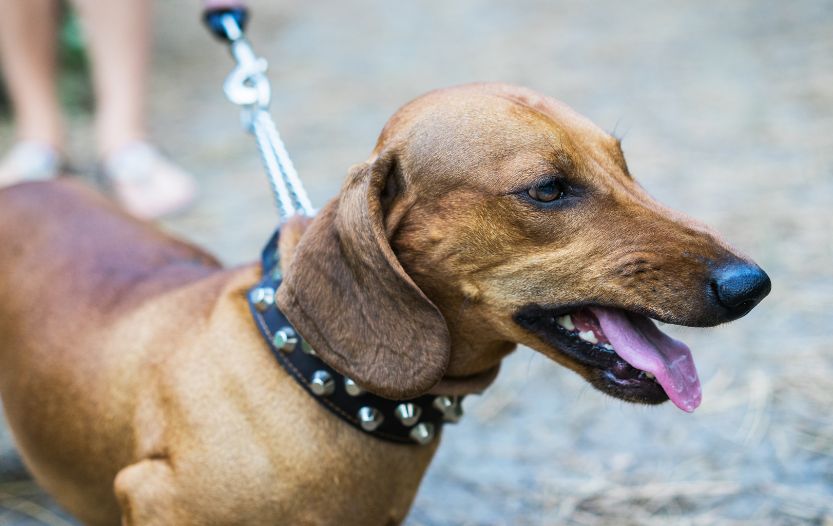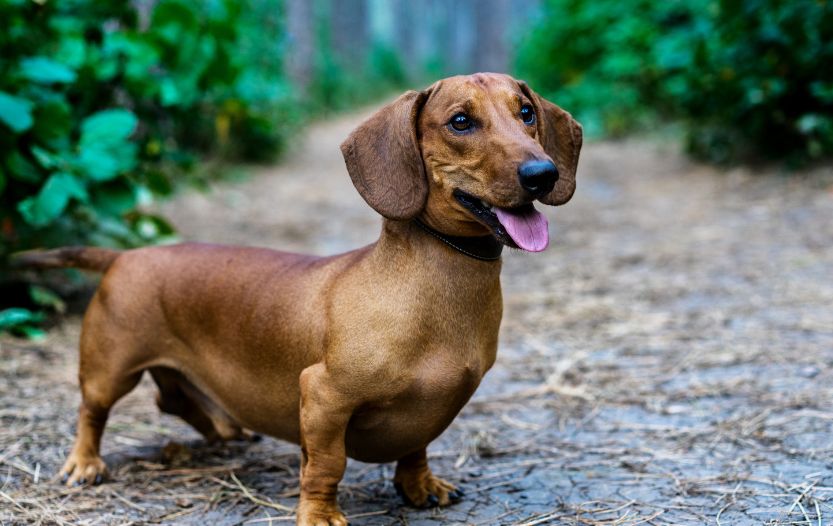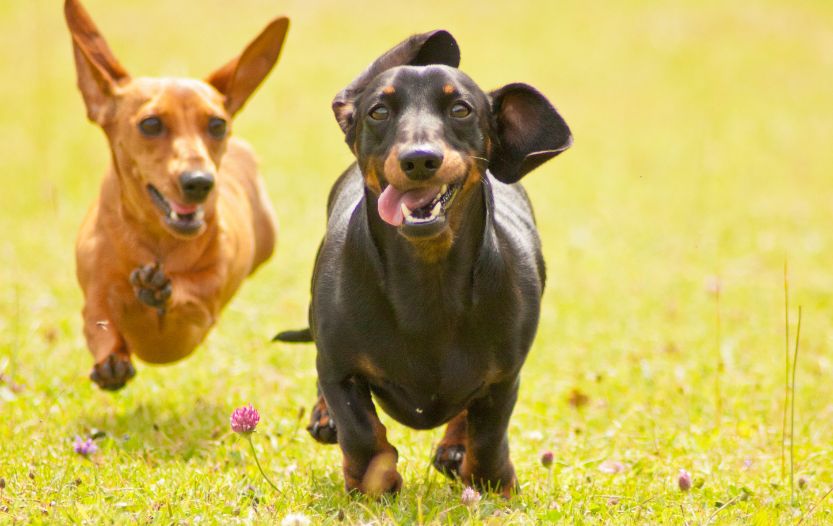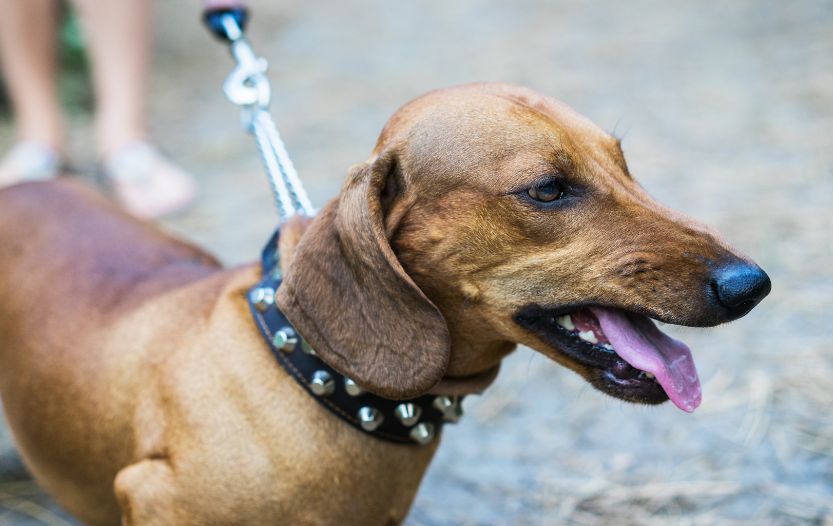Prepare to be surprised! Uncovering the truth about these delightful dogs may challenge everything you thought about them and their drooling tendencies.
So, do Dachshunds drool?
Yes, Dachshunds do drool. However, contrary to popular belief, dachshunds are not typically heavy droolers. While individual dogs may vary, their long and narrow snouts play a significant role in minimizing drooling compared to other breeds.
In this article, we’ll dive into the factors influencing dachshund drooling and understand how to best care for our beloved four-legged friends.
So, let’s dive deeper into the fascinating world of dachshunds and unravel the truth behind their drooling habits.
Do Dachshunds Drool?

Dachshunds are not typically heavy droolers despite their long bodies and adorable personalities. In comparison to breeds with shorter snouts, they drool less frequently because of their long, narrow snouts.
Although drooling differs from dog to dog, as a breed, dachshunds are not known for having excessive salivation. Dachshunds typically have good salivary control, making them a good option for people who want a dog that drools less.
It’s important to remember that dachshunds occasionally drool, especially during times of excitement or anticipation, like during meals or when anticipating treats. Drooling is not a major concern for the majority of dachshund owners, though, in general.
Why Do Dachshunds Drool?
Dogs drool as a natural physiological reaction, and the quantity of drool varies between breeds and even between individuals within a breed.
Due to certain factors, including genetics, dental health, and the size and shape of their jaws, some dogs tend to drool more than others.
Due to their loose lips and jowls, some breeds, such as Saint Bernards and Bloodhounds, are frequently linked to excessive drooling. But in order to assess each breed’s propensity for drooling, it is crucial to do so separately.
Contrary to popular belief, dachshunds are not typically known to drool a lot. Comparatively speaking, they rarely drool as much as other breeds do. The long, narrow snout of dachshunds is a defining physical trait that contributes to their lower drooling tendencies. Due to their particular facial structure, dogs with shorter snouts, such as Bulldogs or Pugs, are more likely to drool.
Factors Influencing Drooling in Dachshunds

It’s important to remember that while dachshunds as a breed are not known for excessive drooling, individual dogs can still differ in their drooling tendencies. Here are some elements that could affect dachshunds’ drooling.
Excitement & Anticipation
Like many dogs, dachshunds may drool when they are excited, particularly during mealtime or when they are anticipating rewards or treats.
Dental Health
Excessive drooling can occasionally occur in any dog breed, including dachshunds, due to poor oral hygiene or dental problems. The maintenance of oral health requires routine dental care and veterinary examinations.
Heat & Dehydration
Dachshunds and other dogs, especially in hot weather, may salivate more. Make sure your dachshund has access to plenty of fresh water, and keep them out of the sun as much as possible.
Stress & Anxiety
Some dachshunds may drool as a response to stress or anxiety. It’s important to create a calm and secure environment for your dachshund to minimize these triggers.
Managing Drooling in Dachshunds
There are a few steps you can take if you notice excessive drooling, even though dachshunds typically don’t need extensive drool management. It’s important to keep these in mind in order to ensure your pet is happy and healthy, along with making less of a mess for yourself.
For dachshunds to maintain good oral hygiene, regular tooth brushing is necessary.
Avoid Dental Issues
Plaque and tartar buildup, which can result in dental issues and potential drooling problems, are prevented by brushing their teeth two to three times a week. Because human toothpaste can be harmful to dogs, it’s crucial to use canine-specific toothpaste.
In order to ensure thorough cleaning and address any potential dental issues, it is also advised to schedule professional dental cleanings with a veterinarian on a regular basis.
Here’s the deal: While dental health is extremely important, hydration is even more of a factor in contributing to drool production. Here’s why.
Hydration and Health
Health in general depends on proper hydration, and dachshunds are no exception. Make sure your dachshund always has access to clean, fresh water. Dachshunds may drool more in hot weather or during times of increased activity as a reaction to heat or dehydration.
You can lessen excessive drooling and prevent dehydration by offering an ample supply of water. To keep the water for your dachshund inviting and fresh, keep in mind to change it frequently.
Importance of Exercise
Sometimes dachshunds will drool excessively due to stress or anxiety. To reduce stressors, you should provide a safe and secure environment for your dachshund.
Examine their behavior and body language to spot any potential stressors like loud noises, strange people, or other animals. Give them a place to go to when they need a break that is secure and comfortable.
Regular exercise and positive reinforcement training can also help lower stress and improve general well-being.
Next Steps for Your Dog

If you notice sudden or persistent changes in your dachshund’s drooling behavior, it’s always a good idea to consult a veterinarian.
Excessive drooling may occasionally be a sign of a health problem, such as oral infections, dental problems, or gastrointestinal disorders.
A veterinarian will be able to conduct a thorough examination, evaluate your dachshund’s general health, and, if necessary, offer the necessary advice or treatment. It’s critical to have regular veterinary checkups to ensure your dachshund’s health and to identify any potential problems early.
Frequently Asked Questions (FAQs)
When do dachshunds usually drool?
Dachshunds may drool when they are excited, especially during mealtime or when anticipating treats or rewards. They may also drool in response to stress or anxiety. It’s important to observe your dachshund’s behavior and identify specific triggers for drooling in your individual dog.
Why do some dachshunds drool more than others?
While dachshunds, as a breed, are not prone to excessive drooling, individual dogs can still vary in their drooling tendencies. Factors such as genetics, dental health, excitement levels, stress, and overall health can contribute to differences in drooling between dachshunds.
Is drooling more common in specific types of dachshunds, such as long-haired or smooth-haired?
Drooling tendencies are not typically influenced by the coat type of dachshunds. Regardless of whether they are long-haired or smooth-haired, the drooling tendencies of dachshunds are more closely associated with factors like their individual anatomy, genetics, and overall health.
Are there any remedies to reduce drooling in dachshunds?
The management of drooling in dachshunds primarily involves maintaining good dental hygiene, providing fresh water, minimizing stress, and addressing any underlying health issues. It’s important to remember that some drooling is normal for dogs, and it’s best to consult a veterinarian if you have concerns about your dachshund’s drooling behavior.
Are there any health issues associated with excessive drooling in dachshunds?
Excessive drooling can sometimes indicate underlying health issues such as dental problems, oral infections, gastrointestinal disorders, or other medical conditions. If you notice a sudden or persistent change in your dachshund’s drooling behavior, it’s recommended to consult a veterinarian for a thorough examination.
Just keep in mind that while dachshunds may not drool as much as some other breeds, it depends on the individual dog.
You can give your dachshund the best care by being aware of its distinctive characteristics and keeping an eye out for any changes in drooling behavior.
Last Words
Although dachshunds don’t typically drool a lot, it’s still important to maintain their dental health, give them access to fresh water, keep an eye on their stress levels, and seek veterinary guidance if you notice any sudden or persistent changes in their drooling behavior.
Remember that being the best possible caregiver for your beloved companion means being aware of your dachshund’s specific needs, whether they pertain to drooling or general wellbeing.

